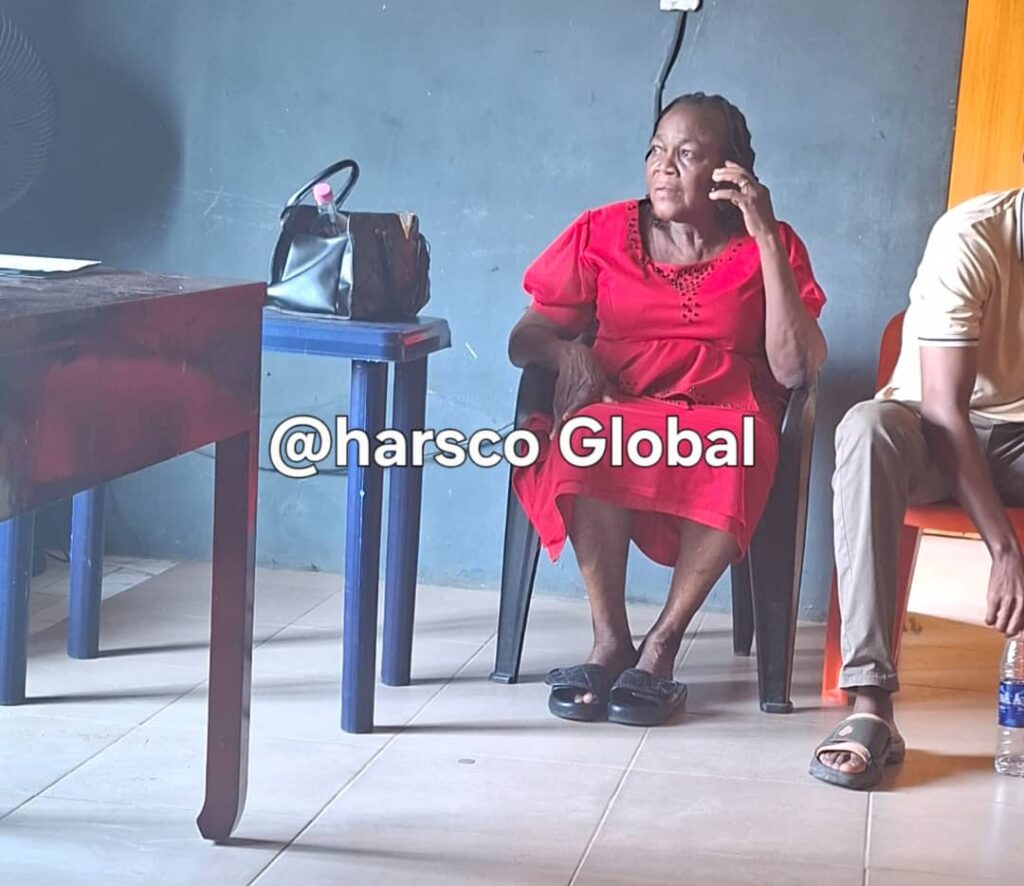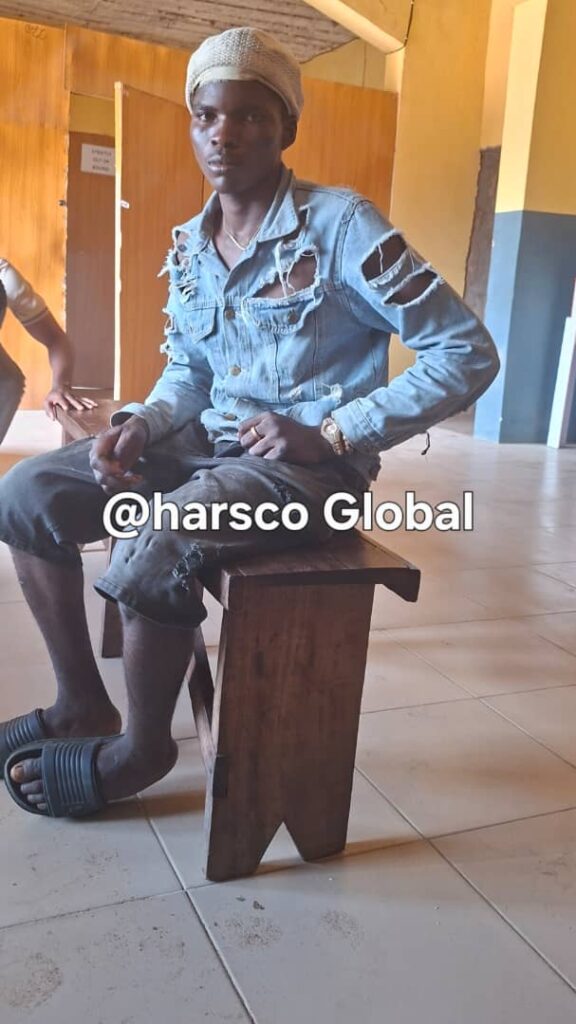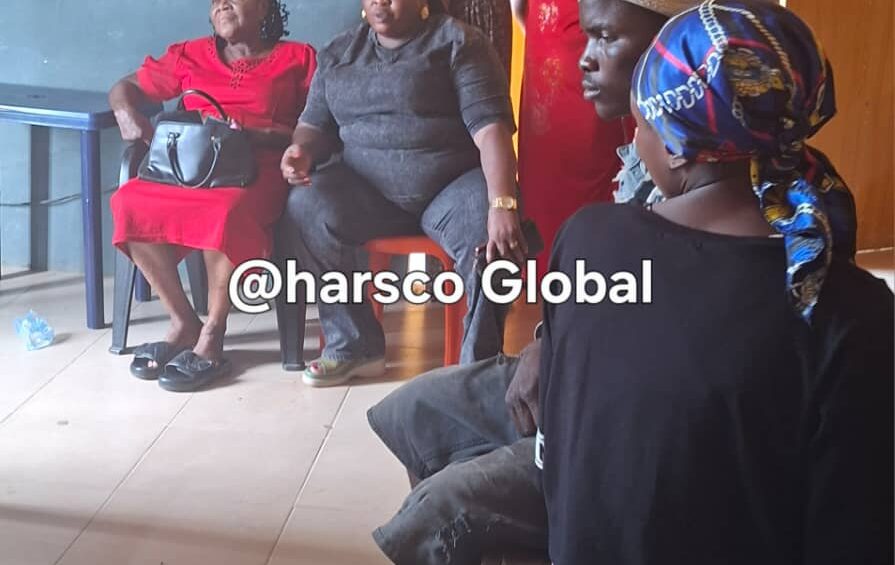By Olivia Odunna
A disturbing case of alleged child trafficking disguised as legal adoption has emerged in Imo State, exposing the dark underbelly of illegal baby sales and unregulated orphanages operating under state cover.
21 year-old Mercy Okoro, a mother of two from Ebonyi State, has accused Madam Charity Uzoka, the operator of Care of the Child Orphanage in Owerri North Local Government Area, of deceitfully selling her newborn baby boy for ₦1.5 million shortly after birth.
The incident, which occurred between March and June 2025 at Watergate Hospital, Orji, has sparked outrage among child rights advocates and human rights organizations, describing it as a clear violation of the Trafficking in Persons (Prohibition) Enforcement and Administration Act (TIPPEA) 2015 and the Child Rights Act (CRA) 2003, which criminalize the sale, transfer, or illegal adoption of children.

A Young Mother’s Ordeal
In an exclusive interview with Harsco Media, Mercy recounted how she met Madam Charity while five months pregnant and struggling to care for her first child.
“I met Madam Charity along the World Bank Area, when I was five months pregnant. She asked about my condition, and when I told her my partner was in detention, she gave me ₦1,000 and kept sending her driver and a friend to convince me to accept her help. When I gave birth, she took my baby, gave me ₦1.5 million, and told me to tell my partner that the baby was a boy who died at birth,” she narrated.
Mercy said she gave birth to a healthy baby boy on June 20, 2025, at Watergate Hospital. The next day, she was taken to the orphanage, where her newborn was separated from her. Following instructions from the orphanage operator, she told her partner, Sunday Elias Michael, that their baby had died and was buried by her relatives.
However, neighbors grew suspicious when Mercy returned home without the baby. A whistleblower reported the matter to the police, leading to an investigation by the Gender Unit of the Imo Police Command and human rights groups Onurubie Coalition, including Sisters With A Goal Initiative (SWAG), Virgin Heart Foundation, SALTI, and Harsco Media.
Investigation and Police Integrity
The police investigation revealed that the baby was alive and had been transferred through Care of the Child Orphanage with forged adoption documents and no legal consent from the father.
According to the SWAG Incident Report obtained by Harsco Media, police officers under the supervision of DPO Oti Kennedy resisted multiple bribery attempts while pursuing justice. The report noted that the orphanage failed to produce valid source documents for the supposed adoption.
“Madam Uzoka remains in custody but has been uncooperative and manipulative,” the report stated. “The orphanage’s records are under review, and investigators suspect a wider network of baby sales linked to other homes in the state.”
Human rights advocates say this case exposes a disturbing pattern of institutional complicity, where orphanages allegedly work with corrupt officials to sell babies under the cover of adoption, a practice that undermines the essence of child welfare in Nigeria.

Legal Framework: What the Law Says
Under Section 21 of the Trafficking in Persons (Prohibition) Enforcement and Administration Act, 2015, “Any person who buys, sells, hires, lets, or otherwise deals with any person as a slave commits an offence of trafficking and is liable on conviction to imprisonment for not less than 7 years.”
Similarly, the Child Rights Act, 2003 (Section 30) prohibits the sale, abduction, or transfer of a child for any consideration, prescribing imprisonment for up to 10 years for offenders.
The Act also upholds every child’s right to parental care, protection from exploitation, and identity, which were all violated in Mercy’s case.
According to data from the National Agency for the Prohibition of Trafficking in Persons (NAPTIP), over 1,200 cases of child trafficking were recorded in Nigeria between 2020 and 2024, with baby factories and illegal adoptions accounting for nearly 20% of reported incidents.
Imo, Abia, and Enugu States are identified as major hotspots due to the high presence of unregulated orphanages and poor monitoring by child welfare agencies.
Voices from the Field
Speaking to Harsco Media, Marjorie N. Ezihe, Executive Coordinator of SWAG Initiative, condemned the exploitation of vulnerable mothers under the guise of care.
“What we see here is not adoption, it’s organized trafficking. These women are manipulated emotionally and financially, while their children are commodified. This must stop,” she said.
Social worker and gender activist Davidson Nwosu (Odumodu) added that several orphanages in Imo are “fronts for baby sales,” often shielded by insiders in government ministries.
“Without systemic reform and transparency in adoption processes, these crimes will continue unchecked,” he warned.
The Bigger Picture
This case highlights the intersection of poverty, corruption, and weak regulatory enforcement that fuels the child trafficking industry in Nigeria. For women like Mercy, desperation makes them targets of exploitation, while corrupt operators profit under the banner of humanitarian service.
A Human Right Activist, Udochukwu Chukwu called for an independent audit of all orphanages in Imo State, stricter licensing regulations, and stronger collaboration between law enforcement, social welfare departments, and NAPTIP to track and prosecute offenders.
Where the Case Stands
As of November 3, 2025, Madam Charity Uzoka remains in police custody at the Orji Police Division, while Care of the Child Orphanage has been recommended for temporary suspension pending a full audit. The baby is yet to be found.
Mercy Okoro is currently under protective care, receiving psychosocial counseling and legal support.
A Call for Justice
The father of the child, Sunday Elias Michael calls on Imo State Government, Senator Hope Uzodinma, local and International Development community, security Operatives to assist him recover his child.
This case stands as a grim reminder of the silent trade in human lives taking place under the name of adoption. It also showcases a glimmer of hope through the resilience of ethical law enforcement officers, community vigilance, and advocacy by civil society organizations determined to expose and dismantle such networks.
If justice is served, this could become a landmark case in Imo State’s fight against child trafficking and a turning point for Nigeria’s child protection system.





